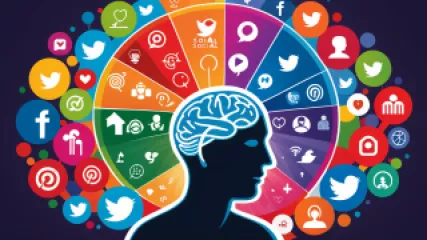Understanding Social Comparison Theory: Key Questions Answered
Social Comparison Theory is a psychological concept that explores how individuals evaluate their own self-worth by comparing themselves to others. First proposed by psychologist Leon Festinger in 1954, this theory has since become a foundational framework for understanding human behavior and the impact of social interactions. In this article, we will delve into the key questions surrounding Social Comparison Theory, providing you with a comprehensive understanding of its principles, applications, and implications.
1. What is Social Comparison Theory?
Social Comparison Theory posits that individuals have an innate drive to assess their own abilities, opinions, and attributes by comparing themselves to others. According to this theory, people engage in two types of social comparisons: upward comparison and downward comparison.
Upward comparison occurs when individuals compare themselves to others who are perceived as superior in a particular domain. This type of comparison often leads to feelings of inadequacy or a desire to improve oneself.
Downward comparison, on the other hand, involves comparing oneself to others who are perceived as inferior. Downward comparison can boost one's self-esteem and provide a sense of superiority or satisfaction.
2. How does Social Comparison Theory affect self-esteem?
Social Comparison Theory has a significant impact on an individual's self-esteem. By engaging in social comparisons, people evaluate their own abilities, achievements, and attributes in relation to others. When individuals compare themselves favorably to others (downward comparison), it often enhances their self-esteem. Conversely, unfavorable comparisons (upward comparison) may lead to decreased self-esteem.
For example, imagine someone who aspires to be a professional athlete but feels they fall short compared to other accomplished athletes. This upward comparison may result in feelings of inadequacy and lower self-esteem. On the other hand, if the same person compares themselves to individuals who are less skilled or accomplished, their self-esteem may receive a boost.
3. What role does social media play in social comparison?
Social media platforms have revolutionized the way we connect and interact with others. However, they have also contributed to an increase in social comparison tendencies. With the ability to curate and present idealized versions of their lives, people often engage in upward comparisons when scrolling through their social media feeds.
The constant exposure to carefully crafted images and narratives can lead to negative psychological effects, such as decreased self-esteem and increased feelings of inadequacy. Research has shown that excessive social media use is associated with higher levels of depression, anxiety, and body dissatisfaction.
It is essential to be mindful of the potential impact of social media on our mental well-being. Practicing self-awareness and limiting exposure to unrealistic comparisons can help mitigate the negative effects of social media comparison.
4. Can social comparison be beneficial?
While social comparison can sometimes have negative consequences, it can also serve as a valuable source of motivation and self-improvement. When used wisely, social comparison can inspire individuals to set higher goals, learn from others' successes and failures, and strive for personal growth.
By observing others who have achieved what we desire, we can gain insights into effective strategies and develop new skills. Social comparison can provide us with benchmarks and role models, inspiring us to reach our full potential.
5. How can understanding Social Comparison Theory enhance counseling sessions online?
In recent years, remote counseling services have gained popularity, offering individuals the opportunity to seek therapeutic interventions online. Understanding Social Comparison Theory can be particularly beneficial for counselors working in this context.
Counselors can help clients explore their social comparison tendencies and how they impact their self-esteem and overall well-being. By fostering self-awareness and providing guidance, counselors can assist clients in developing healthier coping mechanisms and strategies to manage the negative effects of social comparison.
Mindfulness practices can also play a significant role in counseling sessions. Encouraging clients to cultivate mindfulness can help them become aware of their thoughts and emotions when engaging in social comparisons. This awareness allows individuals to challenge negative thought patterns and develop a more positive and realistic self-perception.
Conclusion
Social Comparison Theory offers valuable insights into the complex dynamics of human behavior and self-evaluation. By understanding this theory, we can gain a deeper understanding of our own social comparison tendencies and their impact on our self-esteem and well-being. Mindfully navigating social media, harnessing the positive aspects of social comparison, and seeking therapeutic interventions online can all contribute to self-awareness development and a healthier sense of self.






